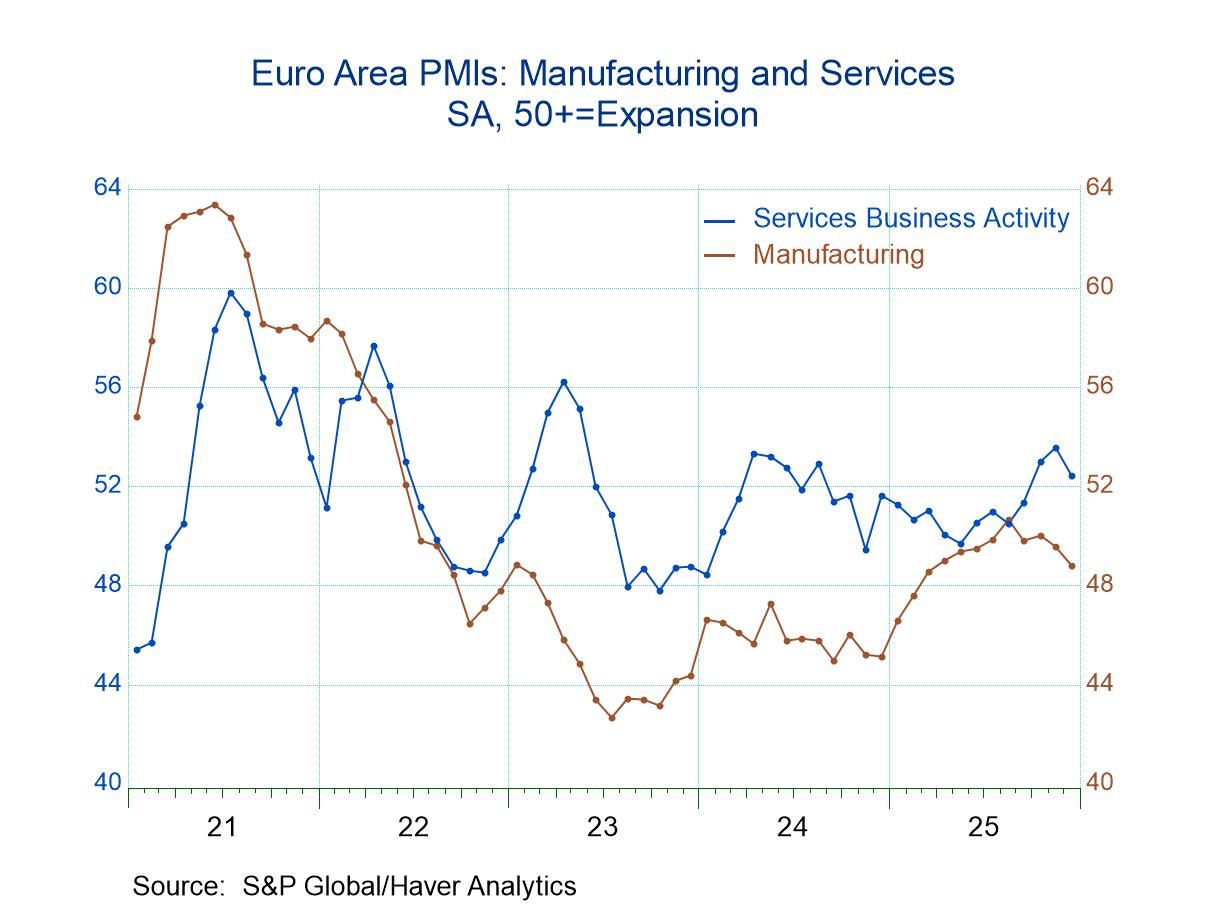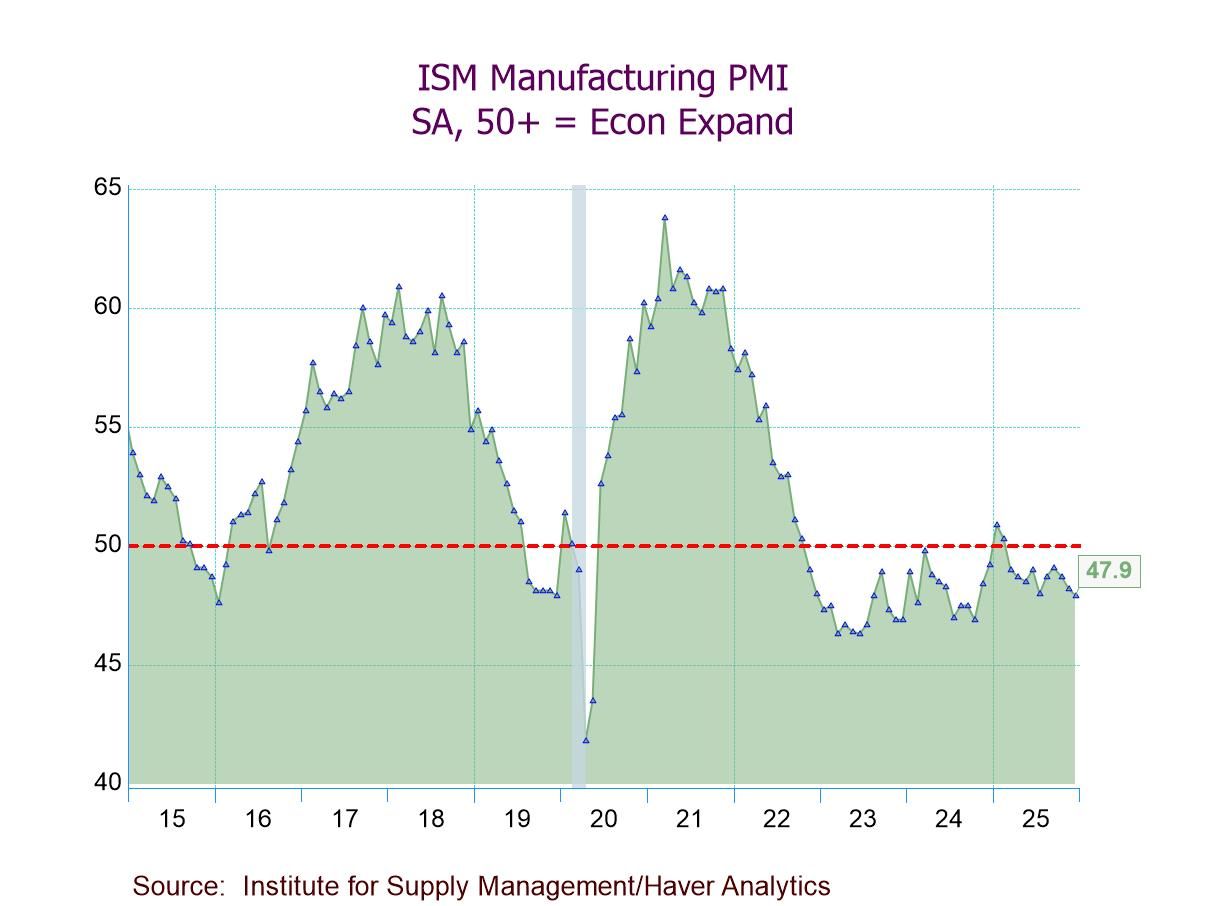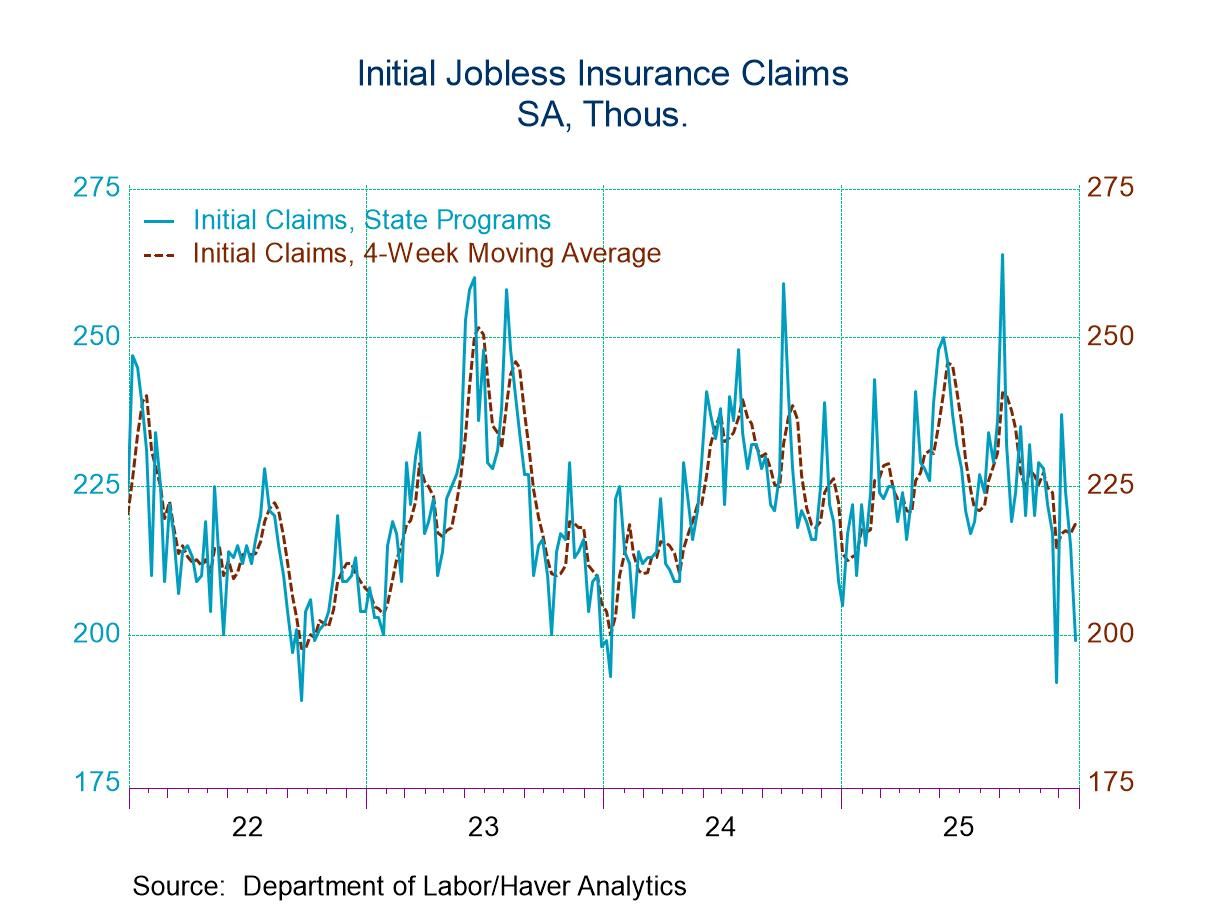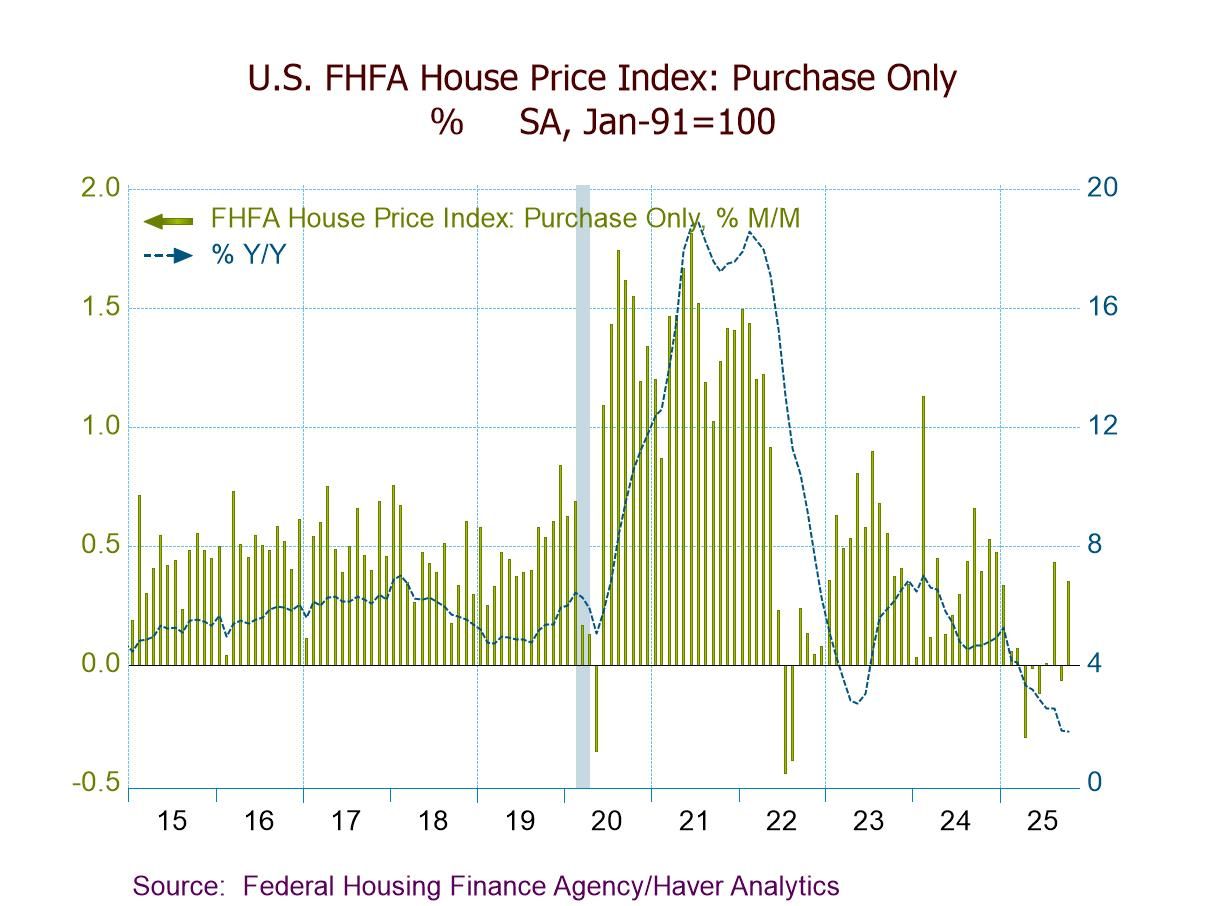 Global| Jun 20 2003
Global| Jun 20 2003Philadelphia Fed Index Higher
by:Tom Moeller
|in:Economy in Brief
Summary
The Philadelphia Feds index of general business conditions matched Consensus expectations for improvement to 4.0, up nearly nine points from May. The m/m improvement was the most since November of last year and moved the index into [...]

The Philadelphia Fed’s index of general business conditions matched Consensus expectations for improvement to 4.0, up nearly nine points from May.
The m/m improvement was the most since November of last year and moved the index into positive territory for the first time since February.
Gains amongst the sub indexes were broad based, although the level of new orders, shipments, and delivery times each remained negative. The 15.3 rise in unfilled orders and the 14.5 point rise in inventories, both to positive readings, were the largest sub index increases. The employment index fell further into negative territory.
During the last twenty years there has been a 67% correlation between the level of the Philadelphia Fed Business Conditions Index and quarterly growth in real GDP. The correlation with quarterly growth in factory sector industrial production has been 79%.
The business conditions index reflects a separate survey question, not the components.
A separate survey of expected business conditions in six months rose to 52.8, the first reading above 50 since December.
The prices paid index fell to 5.8, the lowest level since March of last year.
The Philadelphia Fed index is based on a survey of 250 regional manufacturing firms, but these firms sell nationally and internationally.
The latest Business Outlook survey from the Philadelphia Fed can be found here.
| Philadelphia Fed Business Outlook | June | May | Y/Y | 2002 | 2001 | 2000 |
|---|---|---|---|---|---|---|
| General Activity Index | 4.0 | -4.8 | 20.4 | 7.7 | -17.2 | 8.3 |
| Prices Paid Index | 5.8 | 8.9 | 19.2 | 12.2 | -0.9 | 27.2 |
by Tom Moeller June 20, 2003
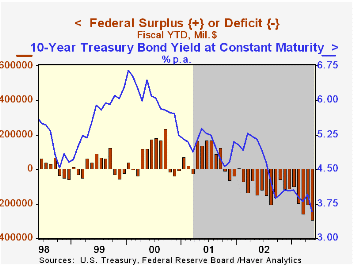
The US Government budget deficit deepened in May versus last year as growth in revenues continued to lag outlays.
Consensus expectations had been for a May deficit of $90.0B.
The Federal government's deficit totaled $292.1B through the first eight months of this fiscal year, double last year's deficit.
Net receipts for the first eight months of FY03 fell 4.8% versus last year. Individual tax payments fell 7.9% and corporate income taxes were down 26.7%. Social insurance contributions rose 2.0% and excise taxes rose 0.2%.
Federal net expenditures rose 6.4% versus last fiscal year's first eight months led by higher defense spending which rose 14.7%. Spending on health programs also was strong, up 10.2%, and spending on education rose 16.6%. Spending on income security rose 8.4% and Medicare outlays rose 8.2%. Social Security outlays rose just 4.1% and interest expense fell 6.1% y/y.
| US Government Finance | May | April | May '02 | FY2002 | FY2001 | FY2000 |
|---|---|---|---|---|---|---|
| Budget Balance | $-90.5B | $51.0B | $-80.6B | $-157.8B | $127.3B | $236.4B |
| Revenues | $103.4B | $231.2B | 0.9% | -6.9% | -1.7% | 10.8% |
| Outlays | $193.9B | $180.1B | 5.9% | 7.9% | 4.2% | 5.1% |
Tom Moeller
AuthorMore in Author Profile »Prior to joining Haver Analytics in 2000, Mr. Moeller worked as the Economist at Chancellor Capital Management from 1985 to 1999. There, he developed comprehensive economic forecasts and interpreted economic data for equity and fixed income portfolio managers. Also at Chancellor, Mr. Moeller worked as an equity analyst and was responsible for researching and rating companies in the economically sensitive automobile and housing industries for investment in Chancellor’s equity portfolio. Prior to joining Chancellor, Mr. Moeller was an Economist at Citibank from 1979 to 1984. He also analyzed pricing behavior in the metals industry for the Council on Wage and Price Stability in Washington, D.C. In 1999, Mr. Moeller received the award for most accurate forecast from the Forecasters' Club of New York. From 1990 to 1992 he was President of the New York Association for Business Economists. Mr. Moeller earned an M.B.A. in Finance from Fordham University, where he graduated in 1987. He holds a Bachelor of Arts in Economics from George Washington University.



